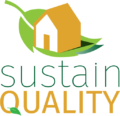Maintaining Listed Buildings – Church
Scope of the Project
This eco-audit report looks at how St John the Evangelist Church in Kingston-upon-Thames has improved its environmental practices throughout a regeneration project, which includes new heating and lighting systems and new toilet and kitchen facilities. The church was first eco-audited in January 2018. Following this it benefitted from supporting activities, such as sustainability training for staff, before this second eco-audit two years later.
The aim of the report is to identify areas of success following the first eco-audit and set further goals to improve its environmental performance. It is also intended to highlight areas where the potential for change has not been achieved, suggest improvements, and consider long term goals.
The report not only gives action points so the church can continue to sustainably improve its performance and fulfil its environmental responsibility, but also share knowledge and good practice with the community it serves.
Tools for Task Implementation
The first eco-audit assessed different aspects of the church’s environmental performance, including policy, energy, waste, water, procurement and travel. Each were given recommendations and next steps for implementation, rated ‘low’, ‘medium’ and ‘high’ according to their impact.
This eco-audit report assessed the same six aspects of environmental performance. For each one it listed the first eco-audit’s recommendations and the progress and achievements that have been made since. For example, the first eco-audit suggested replacing old light bulbs with LED or CFL bulbs to reduce energy bills and reduce the heat in summer. Supporting activities during the regeneration included an energy feasibility study, and this second eco-audit reports a new lighting system in the church with smart controls and light sensors in the new toilet facilities.
Challenges for Task Implementation
The church is still undergoing a regeneration project which includes a new energy system. As a Victorian building with single-glazed windows, it would benefit greatly from insulating the external walls and installing double glazing. However, as a listed building there are restrictions on what can be achieved. Despite this the report suggested carrying out a feasibility study to find out if it is possible to improve the insulation.
Solutions
The report recognises areas of success, where the church has made improvements to its building, operations and outreach to staff and visitors. It also identifies where the church members can benefit further by implementing additional sustainability recommendations. These are listed in order of priority as short, medium and long-term actions, and include:
Policy – Expand and update the environmental policy and share it widely with staff and visitors.
Energy – Consider switching to an eco tariff and installing a smart meter. Also carry out a feasibility study to find sustainable solutions to generate energy, including installing PV panels and electric car chargers.
Waste – Raise awareness of recycling waste and train staff on waste management.
Water – Raise awareness of new water saving features such as the taps in the new toilet facilities. Also consider installing a rainwater collection system.
Procurement – Consider switching to an eco-friendly electricity and gas provider.
Travel – Create incentives for staff and visitors to encourage sustainable transport to and from the church.
Health and wellbeing – Introduce gardening activities to visitors and community groups, and implement biophilic design inside the church.
Key Achievements
The eco-audit showed that the church has made every effort to deliver the sustainability action plan created in the first eco-audit in January 2018, and listed details of its achievements in this area. It also found the day-to-day management of the church is as green as possible, for instance using environmentally-friendly suppliers for printing and cleaning.
The report has also motivated the vicar to improve the church’s environmental performance further, including possibly working with a community energy group to use the church roof or grounds to generate renewable energy.
Benefits for Clients
St John the Evangelist Church is an inclusive community hub for people of all ages and backgrounds. By taking the measures recommended in this report, the church staff and visitors benefit from a more sustainable and ethical institution with stronger environmental credentials. This is a platform from which the church can elevate itself as a beacon for other local institutions to emulate and aspire to.


